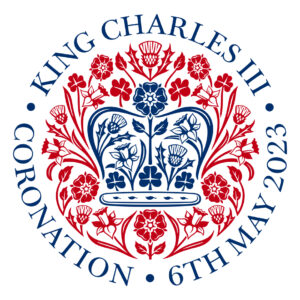 Were you glued to your television screens yesterday?
Were you glued to your television screens yesterday?
Did you manage the whole thing?
What impacted you the most?
The pomp and ceremony? After all we do do these things well don’t we?!
The commentary?
Who was there and who wasn’t?
For me I was, rather ashamedly, struck by the sacramental and sacred nature of the whole thing.
I hadn’t before really absorbed the fact that above all else our Monarchy is under authority, under the sovereignty of God.
Our new King is a servant King – as modelled by Jesus.
Biblically, the role of the Kings was to unite the warring factions of the day – to bring reconciliation and peace to those under their rule – they had varying degrees of success.
It was, and is, a rather tall order. A purpose decidedly difficult, if not impossible, under human power.
All the biblical kings who tried failed in their own strength however the ones who submitted to God had rather more success. A pattern that our present King no doubt would like to repeat.
No other European monarch has a coronation service. The nearest equivalent is the blessing that the Norwegian king or queen receives in Nidaros Cathedral. But that is modest by comparison.
The Coronation Oath of our own monarchs to uphold “the Protestant Reformed Religion Established by law” is made in a sacramental context with anointing and holy communion, speaking of continuities which go back well before the Reformation.
Although the liturgy to be used yesterday was shorter than in 1953, it was based on the rite prepared by St Dunstan when he was Archbishop of Canterbury in 973.
The most striking continuity is even older – with the ancient kings of Israel, anointed because of their divine vocation to serve their people and embody faithfulness to God.
Much has been written about the symbolic nature of the ceremony. The oil to be used this time was blessed in Jerusalem by both the Greek Orthodox Patriarch and the Anglican Archbishop – signifying unity. Following the swearing of oaths, the King was consecrated through his anointing – as a prayer for the invocation of the Holy Spirit upon him. He was vested with a stole. The symbols presented to him shout of Christian leadership: the Bible (‘the most valuable thing this world affords’); the orb (symbolising the world under the cross of Christ); the ring (a reminder of loving service); the sceptre with dove (representing the Holy Spirit).
Finally, the crown is the visible symbol of the King’s vocation before God. At its conclusion, the first act of the King and Queen was to receive Holy Communion together.
The wording before the oath explains the nature of our established church: ‘to foster an environment where people of all faiths and beliefs may live freely’. And there were strong themes in the service which show what this looks like: servant leadership (implicit in Queen Elizabeth’s reign but made very explicit in this service); covenant (the importance of mutual respect, commitment, and accountability); thanksgiving (the ability to celebrate all that is good); unity (being united around difference and diversity). The invitation and involvement of people of all faiths and none strongly embodies this.
So what can we expect from our new King? If the ceremony was anything to go by we have a king determined to live under the authority of God, following in his mother’s footsteps, a King keen to foster unity and collaboration with those of all faiths and none, a servant King who intends to walk in the way of Jesus and who knows he is powerless to do so unless he submits to the sovereignty of God.
And as the words by St David on the processional cross attest, ‘Be joyful, keep the faith, and do the little things’. This is our prayer for our new King. Amen.
Abinger Common, Surrey RH5 6HZ ///delay.trials.plans
Tel: 01306 737160


Data Protection & Privacy
We do not track any browsing activity on this website.
We may sometimes link to external sites and social media but are not responsible for the content of these websites and you should refer to their individual privacy and cookies policies.
If you are included in an event photo and do not wish to be please contact us and we will remove – Contact Us

If you would like to apply for a Login account to help update this site, please email the web team here.